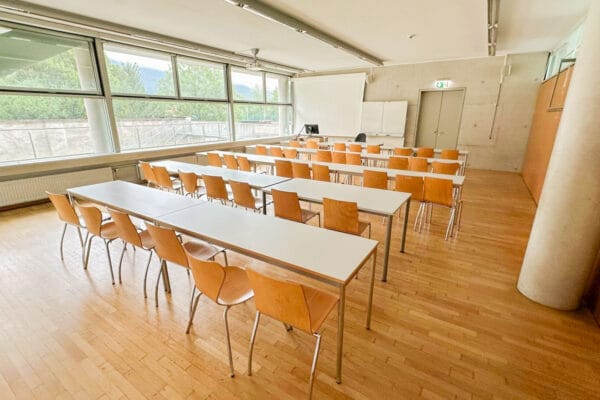
NAME:
SOWI - SR 3
BUILDING:
SOWI
FLOOR:
1
TYPE:
Seminar Room
CAPACITY:
35
ACCESS:
Only Participants
EQUIPMENT:
Beamer, PC, WLAN (Eduroam), Overhead, Flipchart, Blackboard, Handicapped Accessible, LAN
Climate change threatens work opportunities in mountain regions worldwide due to the inextricable link between work, natural capital, and environmental conditions. This socio-ecological interconnection is particularly pronounced in mountain regions, making work opportunities highly vulnerable to climate change. As a result, the ability to live well—particularly through work—will be significantly disrupted. The extent to which a person’s work is vulnerable or resilient to climate change depends on multiple factors. Deficiencies in decent work, such as job precariousness, contribute to chronic (un)employment vulnerability. Conversely, those in secure and stable jobs are more likely to remain resilient during disruptions. Working conditions also play a crucial role: individuals already working in harsh, hot environments will be disproportionately sensitive to heat stress exacerbated by climate change. However, work-related social vulnerability and resilience is also shaped by the labour market’s ability to generate work opportunities. A worker’s susceptibility to climate change impacts is determined not only by their individual work conditions and experiences but also by the system’s capacity to generate jobs. To assess worker susceptibility to climate change in the French Alps, we identified indicators representing decent work, labour market resilience, work and worker climate sensitivity, potential climate change impacts, and environmental pressures. A multi-scale cross-sectional spatial analysis reveals notable spatial differences between municipalities where workers are generally more secure and less exposed to climate hazards and those with more precarious employment and greater exposure. These patterns broadly reflect urban-rural divides, valley-high mountain distinctions, and regional variations. Although policymakers often respond to this threat with techno-centric, business-as-usual solutions, we propose a sustainable human development pathway. This approach is essential for safeguarding workers’ well-being while fostering contextually appropriate work opportunities within ecological limits.

We and use cookies and other tracking technologies to improve your experience on our website. We may store and/or access information on a device and process personal data, such as your IP address and browsing data, for personalised advertising and content, advertising and content measurement, audience research and services development. Additionally, we may utilize precise geolocation data and identification through device scanning.
Please note that your consent will be valid across all our subdomains. You can change or withdraw your consent at any time by clicking the “Consent Preferences” button at the bottom of your screen. We respect your choices and are committed to providing you with a transparent and secure browsing experience.